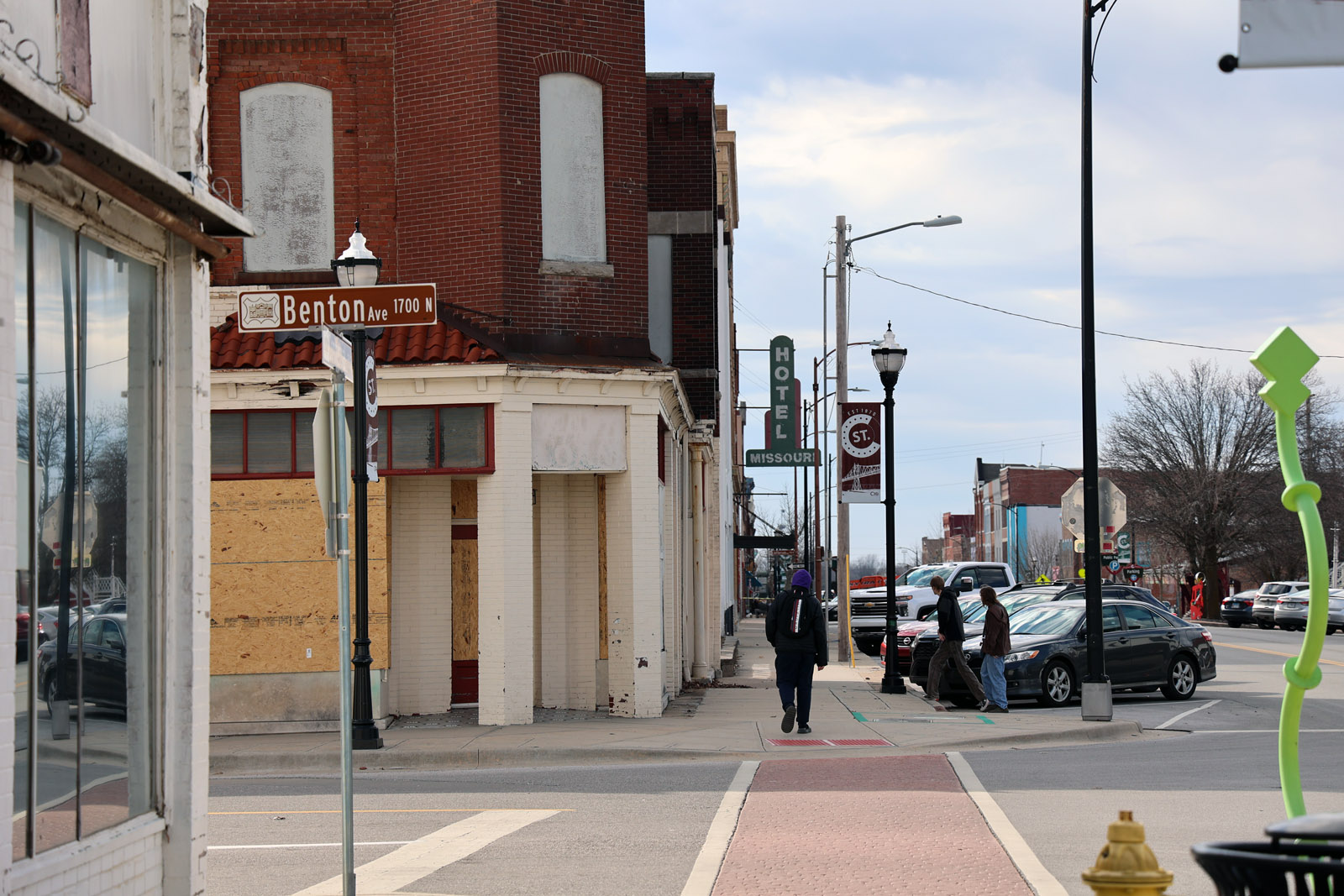Under a plan that could set the stage for the redevelopment of a host of buildings in and around Historic C-Street, a Springfield developer hopes to secure a blight designation and property tax abatement.
The Commercial-Pacific Street Redevelopment Corporation, led by Titus Williams, is applying for a redevelopment plan that would declare 17 properties in the Commercial Street Historic District and Springfield’s Midtown neighborhood blighted, and authorize a redevelopment agreement and property tax abatement on one of four project areas — a multi-family development south of Pacific Street, between Jefferson Avenue and Benton Avenue.
The plan was presented to the Springfield City Council at its March 25 meeting, and was received with both support and concern from council members and the public.
Councilmember Monica Horton encapsulated the concerns in questioning the need for a redevelopment plan to include future phases that still require multiple levels of approval, and citing potential implications the plan could have on surrounding property owners.
“It feels like an omnibus plan to me,” Horton said. “It feels as though this is a plan that is ready to go for Pacific South, but because the other three plans are not cleared through the various levels, it seems as though we need to put the brakes and perhaps recommend separate redevelopment plans for those three phases.”
The City Council is slated to vote on the redevelopment plan at its April 8 meeting.
Specifics of the plan
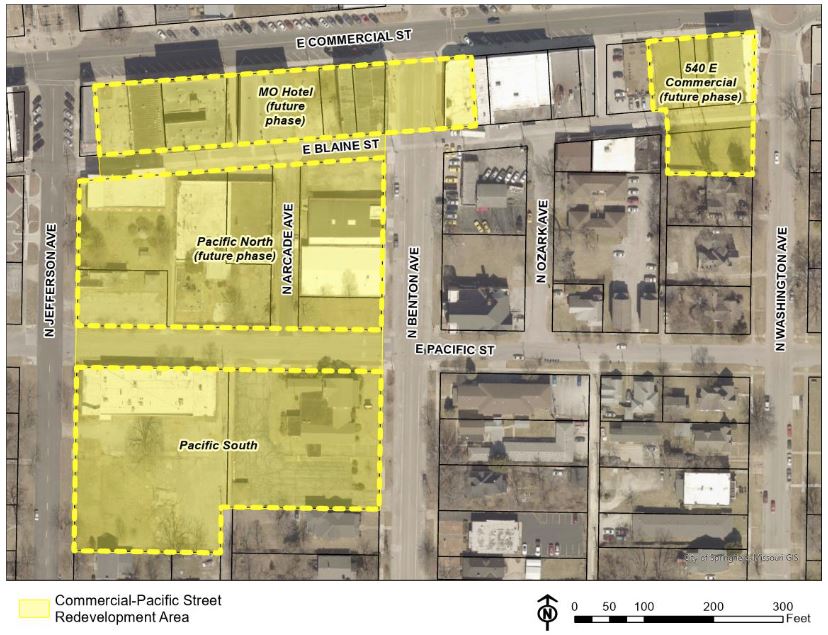
Enabled through state statute, redevelopment plans allow for-profit Urban Redevelopment Corporations to access tax incentives to help redevelop blighted areas. Cities are authorized to provide up to 25 years of partial property tax abatement, freezing 100% of the assessed valuation of the land and any new improvements for the first 10 years and freezing 50% of the valuation for the remaining 15 years.
The redevelopment area’s 17 parcels — totaling about 7.5 acres — are generally located along the south side of the 400-500 blocks of East Commercial Street (near the former Missouri Hotel), the east side of the 1600-1700 blocks of North Jefferson Avenue and the west side of the 1600-1700 blocks of North Jefferson Avenue.
The properties are owned by Historic Commercial Developments LLC, Titus Williams LLC and 540 Commercial Partners LLC, which all list Williams as the registered agent in Missouri Secretary of State business records. Williams, Viviana Writer and Tim O'Reilly all sit on the board for the Commercial-Pacific Street Redevelopment Corporation, according to business records.
In addition to the 72-unit townhouse-style apartment complex in the Pacific South project area, the redevelopment area calls for multi-family residential and mixed-use development in Pacific North, commercial and residential mixed-uses at 540 E. Commercial St., and the rehabilitation of the Missouri Hotel and adjacent properties.
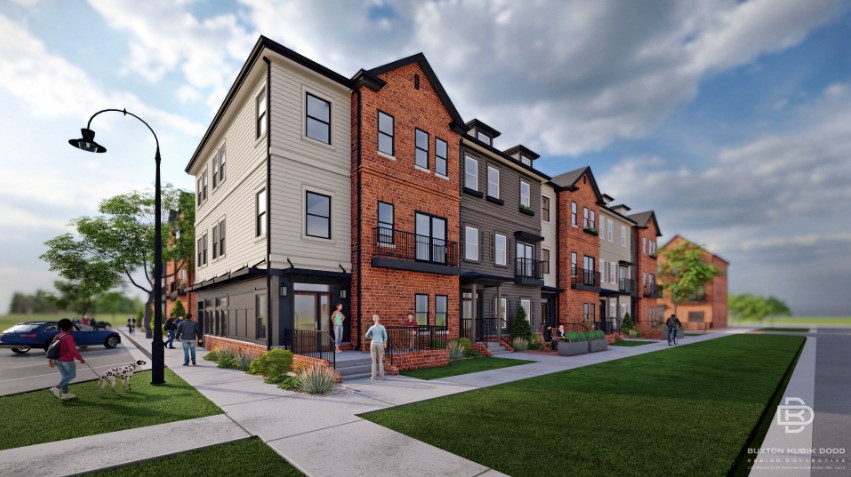
Construction on Pacific South — estimated to cost $15 million — is planned to begin immediately upon the approval of the redevelopment plan, with the other projects planned to begin between summer 2024 and summer 2025.
While a redevelopment plan would declare them blighted, and set the stage for future incentives, three project areas wouldn’t immediately be eligible for tax abatement, and the development of them would still undergo the city approval process, including consideration by the Landmarks Board, the Planning and Zoning Commission and the City Council.
If redevelopment occurs and additional tax abatement is authorized, the redevelopment area could see over $1.2 million in added property tax revenue over the next 25 years.
Everything but the Pacific South project area is currently located in the Commercial Street Tax Increment Financing (TIF) district, which would require an amendment and a buyout of remaining tax revenues negotiated and approved by the TIF Commission and the City Council. Shelby Wood, an attorney with Spencer Fane representing the applicant at the City Council meeting, estimated the buyout to be about $200,000.
Council members suggest separate redevelopment plans
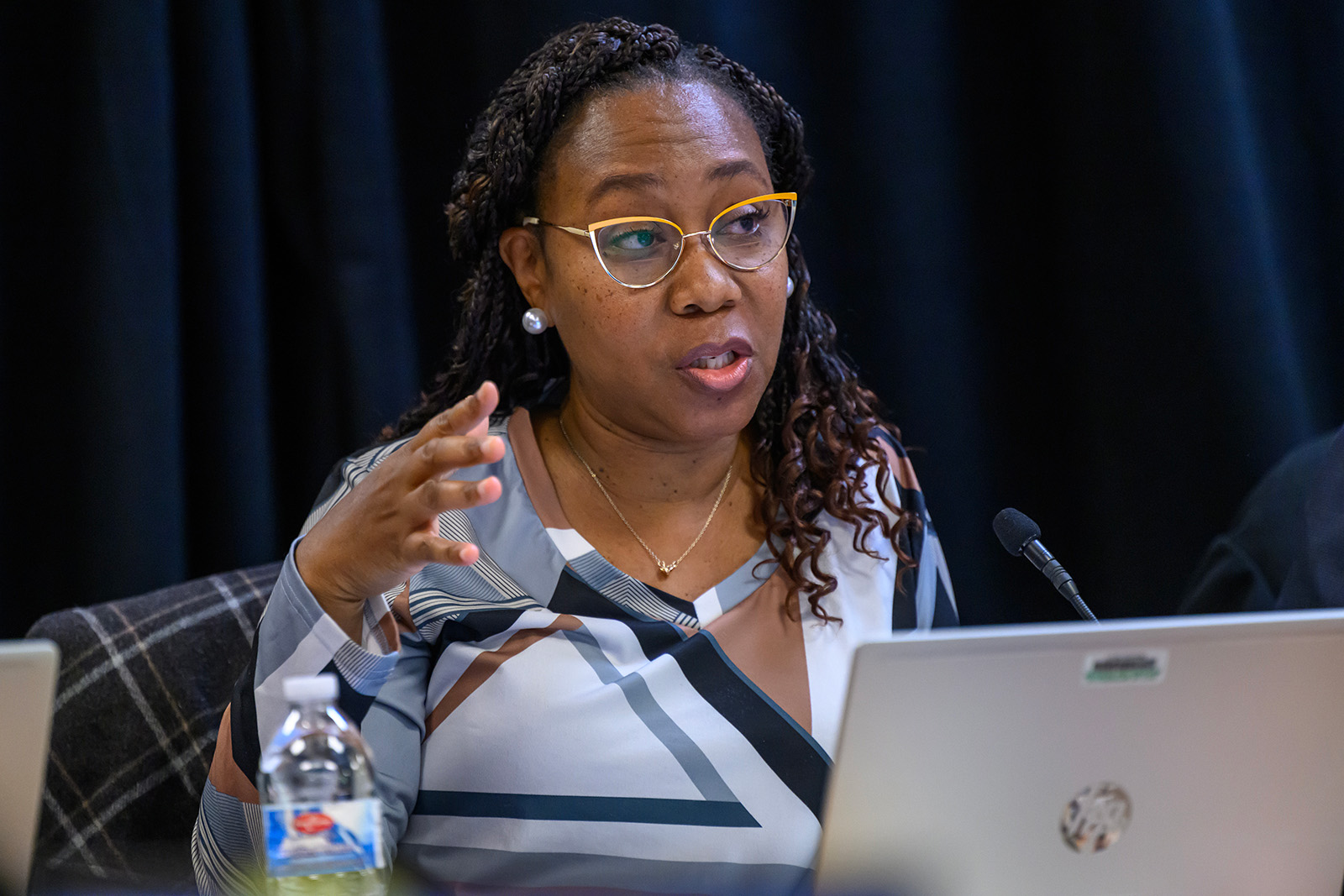
Wood said the developer hopes to complete the TIF buyout, and necessary amendments in a single transaction. Additionally, he said the developer was seeking the blight designation for all four project areas under one plan “out of an abundance of caution.”
“On the blight prong, developers can sometimes get into trouble with that prong if they take action to clean up and remediate the blight on their properties before actually securing the designation of blight from the city,” Wood said.
However, some council members showed reservations over the scope of the redevelopment plan, and requested each project area have a separate plan, while expressing readiness to approve the Pacific South project.
“It still just feels as though this needs to be divvied out as separate redevelopment plans, as it is provided within the total redevelopment plan,” Horton said. “Because otherwise, we're going to be backtracking, and kind of piecemealing this together with a bunch of amendments, when we can kind of deal with these projects separately until they have actually been cleared.”
Though recommended for approval by city government staff, Director of Economic Vitality Amanda Ohlensehlen said that a redevelopment plan encompassing all four project areas was requested by the developer.
“There are different ways to kind of slice the apple here,” Ohlensehlen said. “The applicant chose to apply for the entire redevelopment project area as the preference of a larger-in-scope plan than just the individual first Pacific South phase.”

Horton is also concerned how the redevelopment plan could impact the ability of other property owners to secure historic tax credits. Though doubtful it would affect the historic designation of C-Street, Planning and Development Director Steve Childers said the State Historic Preservation Office was unclear on that.
Council members Brandon Jenson and Craig Hosmer expressed concern over the possible demolition of historic buildings. Jenson requested city staff explore the possibility of adding conditions to the redevelopment plan to compel the preservation of buildings, and Hosmer asked directly of the developer.
Though he was unable to promise what buildings would or would not be preserved as some of the structures are “severely deteriorated” and details weren’t available on the three latter phases, Wood said the goal is to save what they can.
“I can't say with 100% certainty that every single one will be saved,” Wood said. “But the goal is to save as many as possible.”
C-Street advocates, residents voice concerns
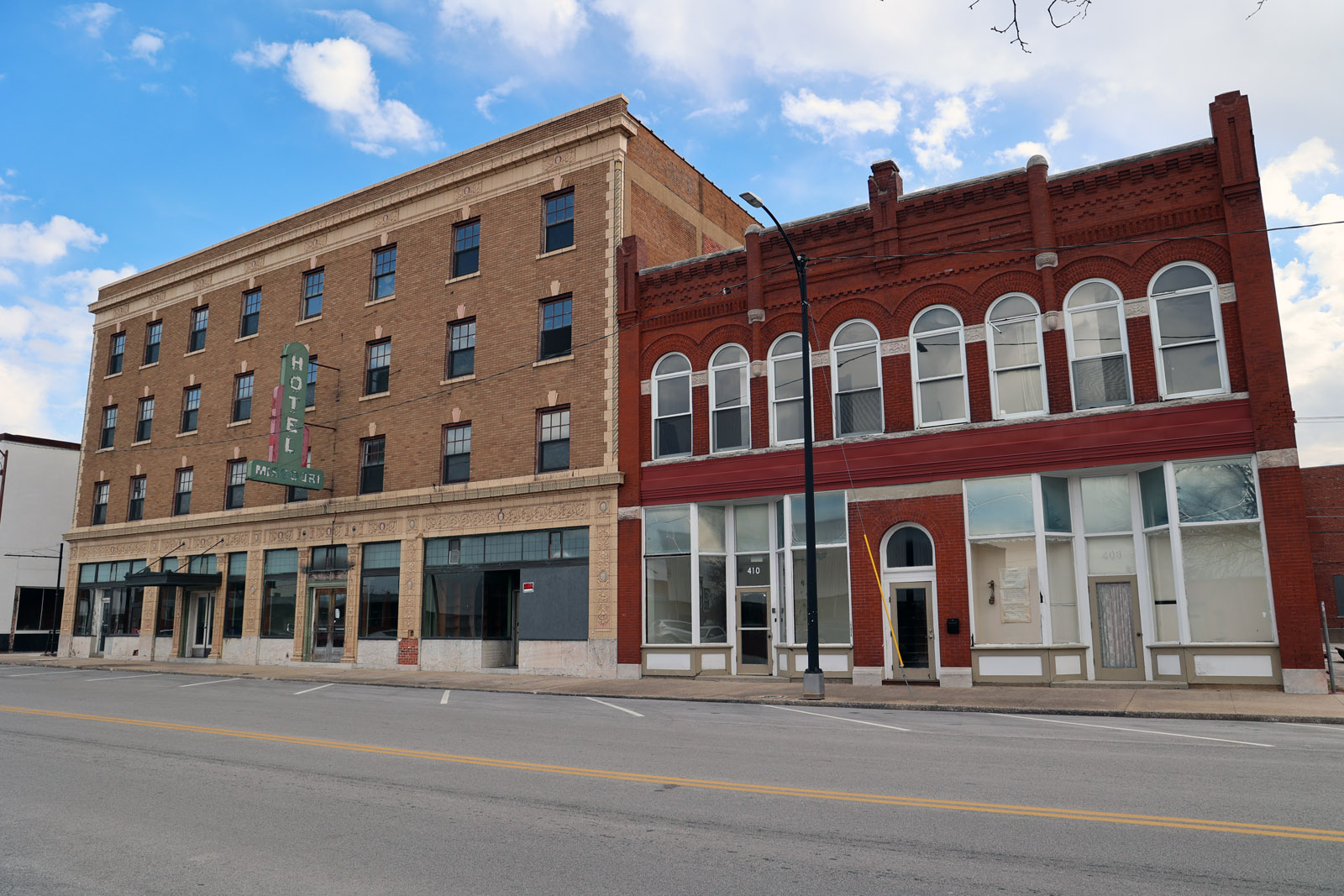
The half-dozen C-Street and Midtown residents explicitly expressed support for the Pacific South project — commending the developer’s communication with the neighborhood in planning the apartment development — but echoed the concerns of council members.
“We would like to see this greater redevelopment of this whole stretch of Commercial Street happen,” Ran Cummings, president of the Midtown Neighborhood Association, said. “It would be nothing but a boon to both Commercial Street and, by proxy, Midtown. That said, we would basically request the same sort of dialogue that we were afforded with a developer last year.”
Irene Schaefer, a business owner on Commercial Street, fears future phases of the plan won’t be in compliance with Forward SGF, the city’s comprehensive plan, and echoed Councilmember Horton’s recommendation.
“It just feels like decoupling of the phases into their own redevelopment projects would be smoother, and we can work through the issues faced with each of those different projects,” Schaefer said.
Christine Schilling, a Commercial Street resident and business owner, is concerned that city staff’s recommendation that the “Commercial-Pacific Street Redevelopment Area be approved” implies further approval of development, referring to it as “scope creep.”
She is also afraid of Commercial Street losing its historic designation as a result of buildings being rehabilitated, or demolished.
“Rehabilitation is a funny word,” Schilling said. “And it doesn't necessarily mean what it means in physical therapy. It could very well mean destruction, and the fact that we cannot get a guarantee that we are going to be able to save the buildings in our existing historic district concerns me a great deal.”
